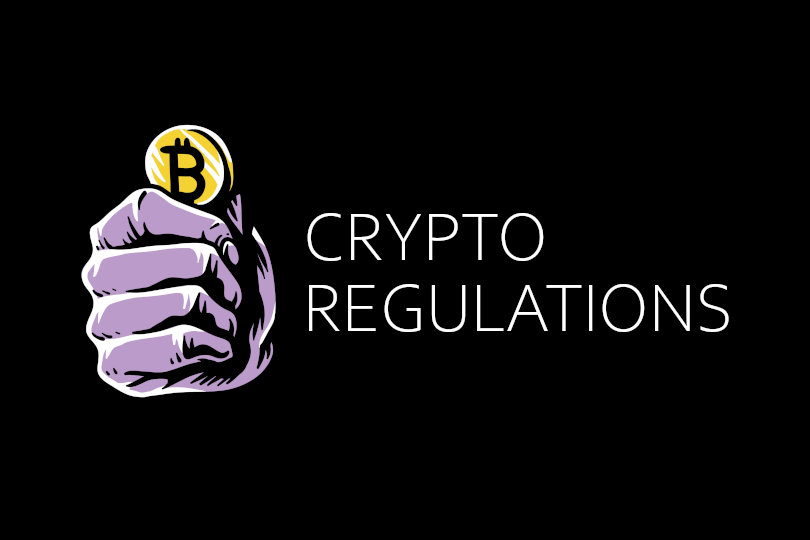“There is no perfect regulation without risks in the world of cryptocurrencies”
– Maxim Kurbangaleev on sanctions and SUEX
In the fall of 2021, there was a precedent that marked the beginning of large-scale sanctions in the world of cryptocurrencies: the Ministry of Finance of America imposed sanctions against the cryptocurrency company SUEX on the basis of money laundering allegations.
According to the US Treasury, SUEX “participated in fraudulent financial schemes,” including “servicing Hydra” – the main dark web drug market in the country. Maxim Kurbangaleev discusses sanctions in the financial sphere and explains what an honest business should do in order not to get into such situations.

Maxim Kurbangaleev: why SUEX faced sanctions
“Throughout the history of the cryptocurrency market, various controversial situations occur, which become the subject of discussion of many analysts. A year ago, Washington’s actions against SUEX became widely known – these are the first sanctions of their kind imposed on a cryptocurrency company. Objectively, there is no perfect regulation in the world of cryptocurrencies. Governments create controversial control and regulation services, under the actions of which companies such as SUEX fall,” says Maxim Kurbangaleev.
The cryptocurrency exchange company was founded in 2017. The idea of a cryptocurrency business originated among friends who exchanged currencies among themselves – so it was decided to create an exchanger with official accounts on Binance. Undoubtedly, cryptocurrency companies are susceptible to various factors: the tightening of monetary policy, the volatility of the cryptocurrency market, the lack of a legislative framework, and many other things can greatly affect the activity of crypto companies.
“At SUEX, cryptocurrency on official Binance accounts was checked for “purity” through transaction monitoring services as required by AML/CTF. US law enforcement agencies and regulators did not take into account the ongoing AML monitoring activities and added the exchanger to the sanctions list due to suspicions of money laundering.
Without interviewing the SUEX executives, without in-depth analysis, and even without a trial. Hundreds of people and businesses associated with the company were also affected – all those who carried out operations using the SUEX wallet on Binance were marked, and their accounts were flagged as suspicious,” says Maxim Kurbangaleev.
An analogy can be drawn with cash flowing from hand to hand. It is almost impossible to find out who they belonged to and what transactions they participated in before they got into the wallet – the chain of banknote movements is available only up to the second link.
Imagine that a person gets his hands on “dirty” funds, the path of which he cannot physically trace. He goes to the store, makes a purchase, and is brought to justice without verification, accusing him that he received money for drug trafficking or funds laundering. This is how regulators in the world of cryptocurrencies operate today.” explains Maxim Kurbangaleev.

Maxim Kurbangaleev on the importance of KYC
“The obscurity and uncertainty are what always accompany the crypto world. What will happen tomorrow? Now there are small positive changes in AML checks – transactions in the Bitcoin and the Ethereum networks can be analyzed in more detail and in depth, but this requires large resources,” says Maxim Kurbangaleev.
Anyone can get into a situation where a crypto wallet may be marked for a suspicious transaction. Any crypto company can also be sanctioned for charges of money laundering or other fraud without investigation and trial. What should we do to minimize the risks and not face sanctions like SUEX?
“Firstly, it is mandatory to conduct KYC for absolutely all clients. For business, it is necessary to connect not only crypto monitoring using blockchain analytics services but also classic tools for analyzing transactions in fiat currency, as they do in banks. It is necessary to conduct a full bank check of its users, without any exceptions,” Maxim Kurbangaleev recommends.
KYC procedures are a set of identity checks. Identification of the client is mandatory for any financial institution from banks to crypto exchanges. In addition to verifying the identity of customers, SOF (explanation of the source of funds) and SOW (data on sources of wealth) procedures may be required during onboarding. Both checks will help identify fraudsters and criminals involved in money laundering, drug trafficking, or terrorist financing.
“Conduct business in the “white” segment, form a compliance control department for customer identification processes and monitor the “purity” of operations. Collecting requirements from clients should not raise questions – this is a standard and adequate procedure, without which it is impossible to imagine an honest business. If a crypto company still falls under sanctions or scrutiny from law enforcement agencies, hire a good lawyer. The main thing is not to panic and take all risks with a cold mind,” Maxim Kurbangaleev sums up







